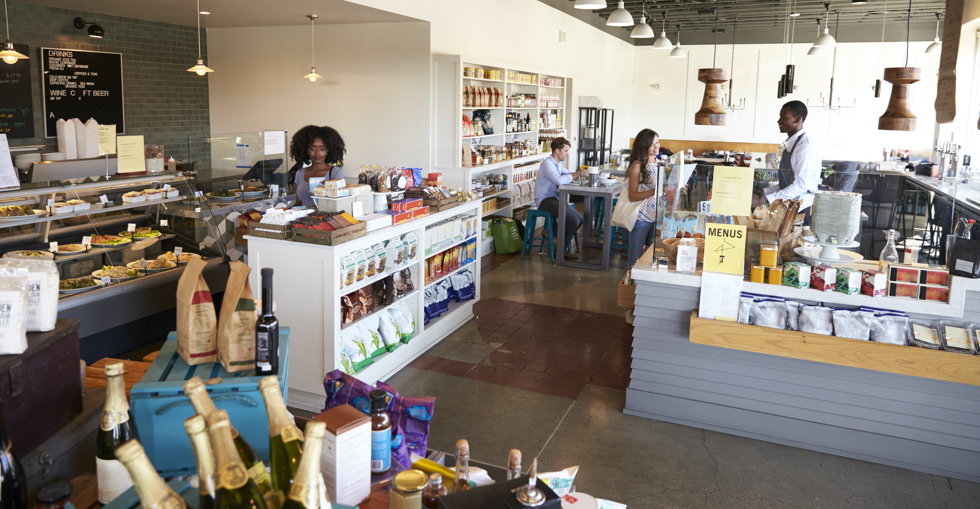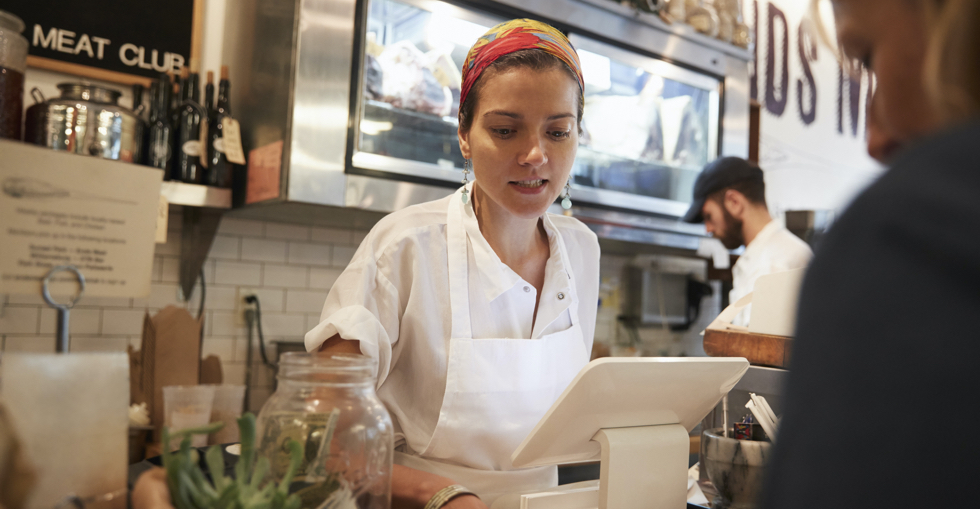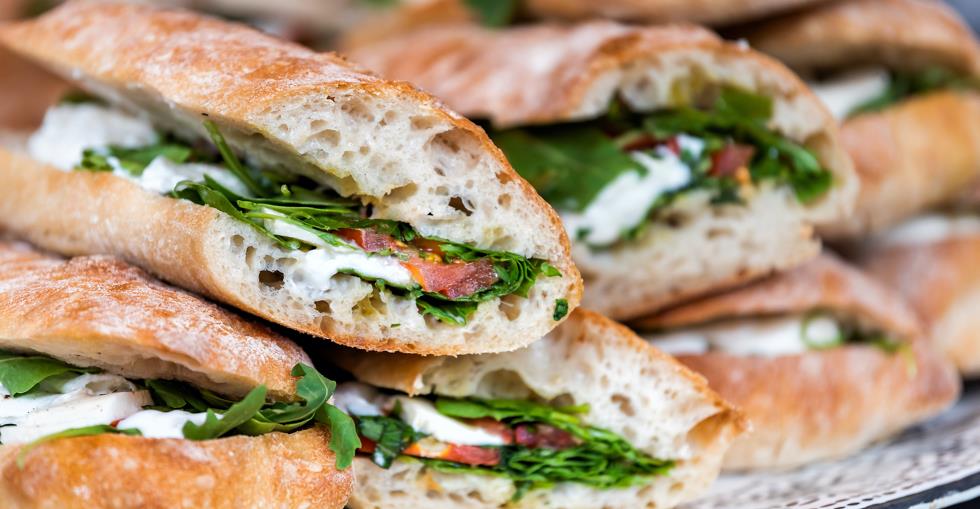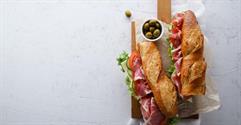Whether you’ve recently started a deli or are still browsing delicatessens for sale, this article is aimed at newcomers to the sector.
Get yourself accustomed to day-to-day business before you start overhauling the menu or redesigning the layout. Watch, listen and learn from staff and customers before identifying strengths that are worth preserving and building on, and weaknesses you can remedy.
Before setting out your vision, you should also first understand your local area, including your competitors, plus – strange as this might sound – precisely what people expect from a deli.
Understanding delis
Defined by the Oxford English Dictionary as “a shop selling cooked meats, cheeses, and unusual or foreign prepared foods”, delicatessens are all about high-quality food, prepared to some degree on the premises.

Delis, therefore, need a mix of premium ingredients, sourced from reputable suppliers, staff with the right culinary skills and the right equipment for making bread, cakes, pies – whatever your specialities are.
Sometimes including seating, as well as being an artisanal alternative to the convenience store, they can also dovetail as a cafe.
Understanding customers and competitors
Just how premium you go should depend heavily on local demographics; you don’t want to price yourself out of a low-income market. Also, take into account the competition and whether you can carve out a niche – distinctiveness being a big plus for delis in the eyes of consumers.
For instance, you could be the one deli in the area where customers can sit down for the finest cake and coffee then buy some kitchen cupboard staples – like rice, pasta and tinned tomatoes – on their way out.

So research matters, although you will surely have done such due diligence already if you’ve gone through the process of buying a delicatessen.
You can learn a lot not just from local competitors but by visiting the finest exponents of the art nationally, from Italian specialist Giovanni’s in Cape Town to InFood Deli, purveyor of organic, locally sourced produce in St Jeffreys Bay.
Specialising
Armed with a better understanding of your competition, potential customers and the deli market you’ll be better equipped to map out your vision. It’s important to have a clear identity, to which everything – from branding and social media output to interior décor and, of course, your food – should be geared.
You could specialise in Italian produce, the finest charcuterie or cheeses from around the world, for instance. You might focus on vegan, gluten-free or organic options. Most delis are small retailers with a small staff so you’re more likely to excel at preparing a few products than a wide range. Try to master one or two signature staples that will make your name and keep people coming back.

Depending on your manpower and kitchen apparatus, there’s a balance to strike between pre-packaged items and food prepared on the premises. You could bake your own bread, cure your own meats, and make your own hummus, but source the finest organic chocolate bars around.
However your menu is composed, though, diligence in finding the right suppliers is key to getting the
best, most unique ingredients and products.
It’s hard to find the time when you’re working long hours six or seven days a week, but try and stay abreast of the latest industry news and trends.
“The industry as a whole is able to keep up on up-and-coming food trends, health concerns, and ideas, and I think that will play a big role in the coming years,” Samantha Oleson, assistant director of US bakery and deli Oleson’s Food Stores, told Progressive Grocer. “The industry is always changing and growing; there are always opportunities.”
Optimising space
An expensive refit might be required if you inherit an outdated, shabby interior. But if money’s tight or your new acquisition was recently refurbed, there’s a lot you can do with minor, inexpensive changes.
Applied to food retail, nudge theory can help you optimise floor space to maximise returns. It’s worth for instance placing compatible items within close proximity to one another and tempting customers with mouth-watering dessert options by the checkout counter.
Human and non-human resources
Your best laid plans will flounder for want of the right equipment and skills.
The South African Chef’s Association, which offers a directory of service providers and training courses in, among other things, bread making and Mediterranean food, is a good place to start if there are skills and resource gaps to fill.





